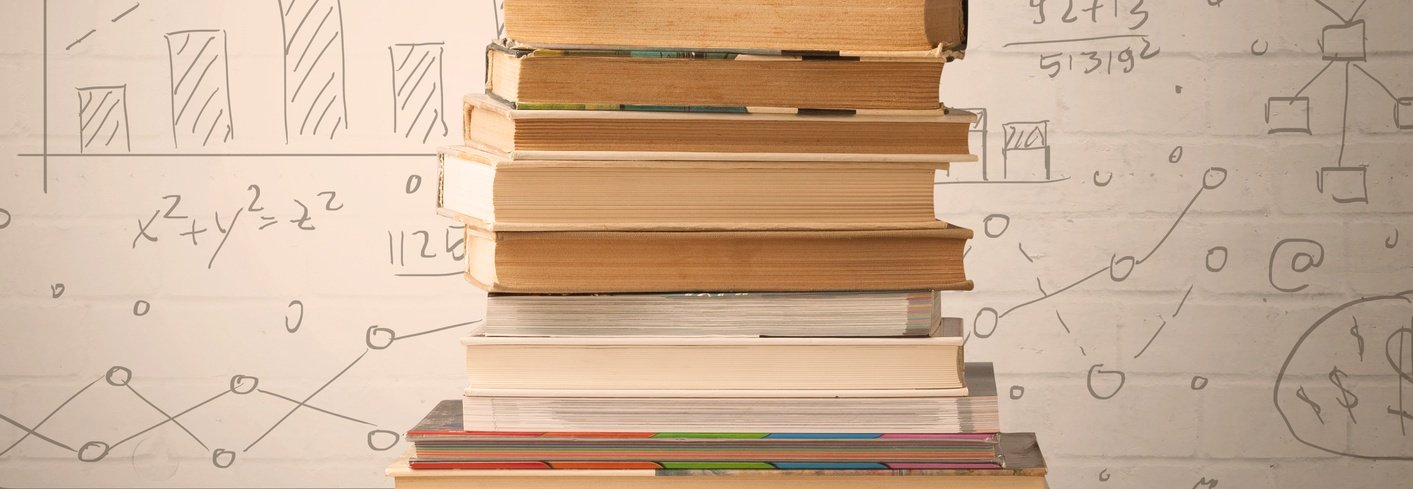If you already know what field you want to study in college, or even have a general idea of your preferred discipline, taking some high school classes that align with your future college curriculum can save a lot of time and energy. But how do you know which high school classes will set you up for success in college?
When designing your high school schedule, consider your interests, intended major, current curriculum, and the course options available to you. For example, if you’re a future STEM or pre-med student, you may want to think about pursuing an International Baccalaureate (IB) Diploma since it’s very tailored to science-driven tracks. Within your IB course load you may opt for two sciences rather than choosing an elective. There are similar ways to tailor Advanced Placement (AP) courses as well.
Whether you’re on a STEM track or intent on a humanities field, there are a few courses you can take to set yourself up for success in your college career and beyond.
What Classes Should You Take for a STEM Degree?
The STEM discipline consists of science, technology, engineering, and math. It can be one of the most rigorous disciplines out there, so it’s important to begin preparing early. Taking advanced high school courses curated to your future field of study will help provide a great foundation (both in knowledge and executive functioning skills) for college-level courses.
It’s also no secret that admissions officers look for rigorous course loads when evaluating applicants. STEM applicants that chose to take one or more AP or IB science courses in high school will be much more impressive to admissions officers than those who took the bare minimum offered at their school.
Biology, Chemistry, and/or Physics
It goes without saying that these courses are crucial for a STEM career — some more than others, depending on what you plan to pursue. If possible, take at least one or more AP or IB science classes to ensure a good foundation before reaching college. If you’re in the IB program, consider substituting an elective for an additional science course.
Remember to tailor your schedule towards your specific goals and needs. If you plan to study medicine or psychology, take biology and chemistry. If you plan to pursue engineering, geology, or a combination of the two, both chemistry and physics will come in extremely handy. If you’re unsure exactly what your future field entails, reach out to a professor or another figure in that scientific community to get a better sense of what courses may be advantageous and potentially required down the line.
AP or IB Mathematics
It’s important for all STEM students to have a solid foundation in mathematics, regardless of what STEM major you want to pursue. Plus, most colleges list math as a core requirement. Depending on the school and your score in AP or IB Math, you may be able to test out of this requirement in college. If math isn’t your strong suit, and you’re considering a career that doesn’t require a strong background in the subject, some schools provide the option to take IB Math Studies, which tends to be less challenging. We always recommend taking the most rigorous courses available to you, but if an advanced course that you may not need for your intended major could risk hurting your GPA and transcript, it’s best not to risk over-exerting yourself.
Learn how admission officers evaluate the transcript.
AP Computer Science
This one is pretty self-explanatory. If you aim to work in a programming/coding field, AP Computer Science provides a fantastic jumping-off point. Not only that, but it provides an opportunity to earn college credit for a computer science course. If computer science isn’t related to your interests or future career, however, this is not a necessity.
AP or IB Psychology
Believe it or not, psychology encompasses much more than just why people think and feel the way that they do. The biological and cognitive aspects are useful in biomedical and neurological fields, for example. The sociocultural aspects are prevalent in public health, public policy, and social sciences. And so on. In short, psychology is incredibly versatile for a plethora of scientific fields — and even some humanities fields, too!
What Classes Should You Take for a Humanities Degree?
The term “humanities” is broad: It could encompass law, media and communications, writing/editing, business, government, history, anthropology, and much, much more. Even some science fields rely on humanities disciplines, too. Public policy, for example, is interdisciplinary with law and education in addition to social science. Since the humanities fields are so multifaceted, it’s important to take high school classes that offer skills in many areas.
AP or IB Psychology
As we mentioned before, having some foundational psych knowledge can set you up for success in a variety of fields. Perspective on how people think and shop is incredibly useful in marketing and advertising, for example. Psychology also lends itself to history and anthropology in the study of behavior and what makes people tick — what made historical figures do the things they did? The knowledge you gain from an AP or IB Psych course will not only give you a great jumping off point for future studies, but it can also help fulfill some core requirements in your college degree — often a humanities, writing, or even a science requirement.
AP or IB English
An AP or IB English course is a must, regardless of what you plan to study. Strong written and communication skills are crucial, not just in college but in life, and can often make or break a future job applicant. It goes without saying that an AP or IB English class will be perfect for those dreaming of a career in journalism, media or public relations, marketing, advertising, copywriting/copyediting, etc., but advanced English classes will also help in other ways.
Taking AP or IB English will often allow you to test out of one or more core requirements in college (humanities, writing, etc.). Written and communication skills are also invaluable in the job search process. Employers actively seek out these skills when looking for suitable candidates, regardless of the position they’re hiring for. Speaking of jobs, many colleges pay students to tutor and/or provide writing help to other students.
AP or IB Foreign Language
As we’ve mentioned before, colleges value a rigorous course load when evaluating applicants. Taking a foreign language at the AP or IB level will help you stand out to admissions officers and can help set you up for success when it comes time to take a language in college, too. Many colleges also offer the option to test out of the foreign language requirement if you achieve a certain score on your AP or IB language exam. Depending on the college, taking more than one language in high school is sometimes enough to test out as well, regardless of your final score in the class/on the exam.
If language isn’t your strong suit, opt to take it at a Standard Level instead of a Higher Level if you’re in the IB; if you’re switching languages, however, consider taking the new language IB ab initio, instead. This is an advanced introductory course, allowing you to learn all the basics at an accelerated speed.
In terms of which language to study, that’s totally your choice! French might be useful if you plan to study in Canada, or Spanish might make more sense if you plan to study in the U.S. Some high schools also offer additional language options like AP Mandarin, Japanese, Italian, etc. — although these are only offered in AP, not IB. This versatility provides even more options for your future goals. If your intended career is business, for example, Mandarin is one of the most spoken and desirable languages in the field. Consider these aspects when making your choice.
What Classes Should You Take if You Don’t Know What to Major In?
If you don’t have your entire life mapped out already, don’t worry. Not everyone knows what they want to major in straight out of high school, let alone before 11th grade. Many colleges offer an “Undecided” option when applying, so that you don’t have to apply to and commit to a certain major immediately. If this is you, take a variety of different high school classes to set you up for success when applying undecided. Doing so will allow you to explore different avenues of potential interest and will ensure you have a good foundation for whatever you do choose to study in college.
It’s important to remember there are many more disciplines than what are listed here — and hundreds more areas of study. Remember to thoroughly research your desired field before making any definitive choices. At the end of the day, the high school classes you take will largely depend on your college admissions goals and how much you can handle in your curriculum. When choosing junior and senior year classes, it’s always best to consult with your college counselor, as they will be able to offer you specific, curated advice depending on your unique needs, goals, and ambitions.
At IvyWise we help students explore their interests and build rigorous course schedules that will help them be successful in high school and beyond. Counselors work in conjunction with our expert research team to ensure students are taking the right courses for their intended majors/top-choice schools. Contact us today for more information on all the services available to you!




